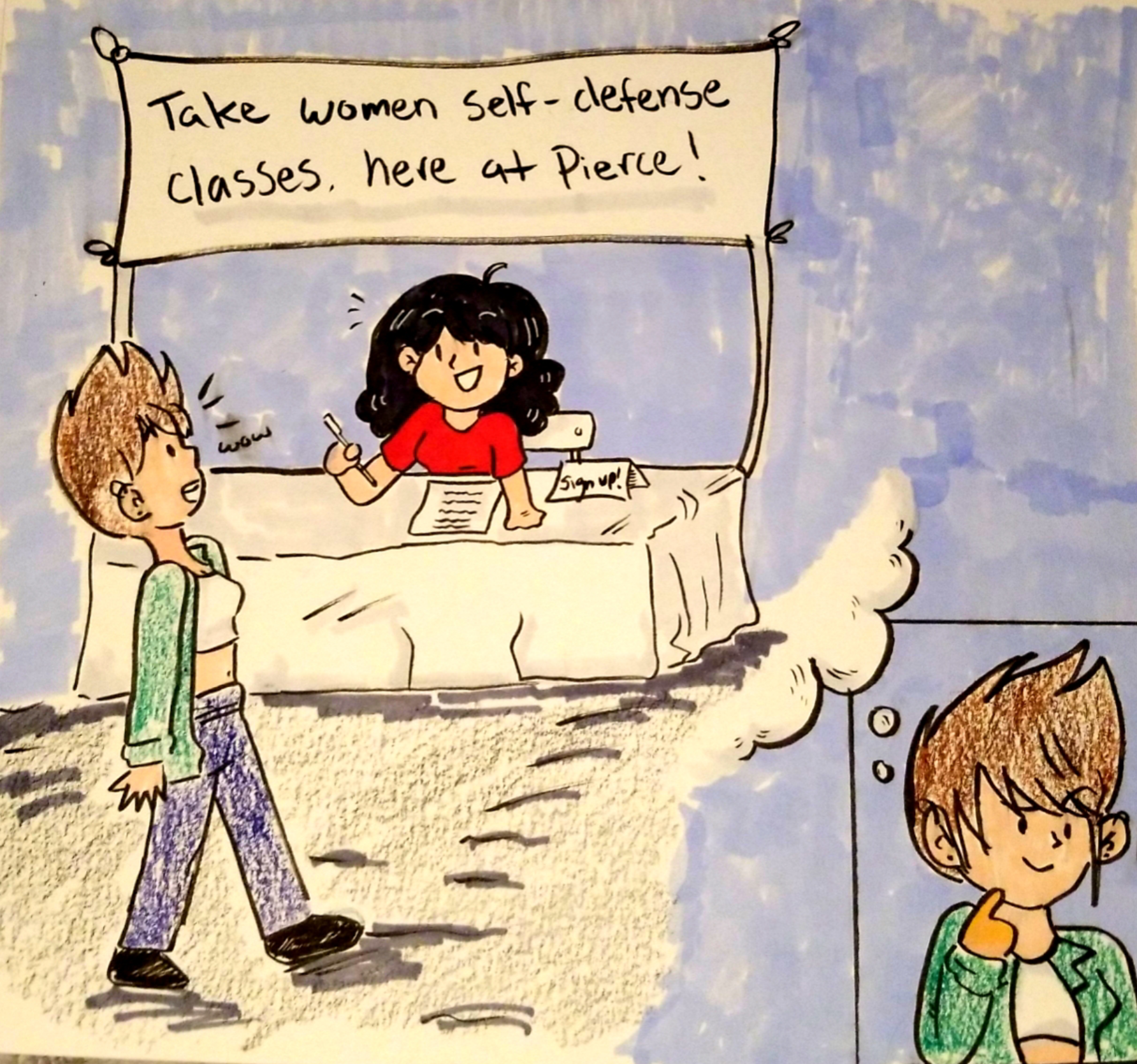While the statistics for sexual assault often will vary from campus to campus, data from a recent study suggests that an average of 21 percent of women experience sexual assault in some form at some point during their college years.
This means that one in five women that pass you on this campus has dealt with some kind of sexual assault or will by the time she gets her degree.
According to A Secure Life, featured on Forbes and CNBC, Although both men and women are victims of sexual assault, women are at a higher risk, and college-age (18–24) women are at even higher risk than women of other ages.
We could offer seminars on campus that teach women how to properly be aware of their surroundings, spot danger and fend off a predator if the time comes because the worst part of an attack for a victim is the feeling of total helplessness.
Not only the physical demands of self-defense but also the physiological and emotional aspects as well.
Women can prep themselves with pepper spray or a taser gun, but in a real world situation there might not be time to reach in your purse to grab your armor against these predators, so women should arm themselves with knowledge offering empowerment in place of where some might feel defenseless.
And what better place to gain knowledge than a place of education like Pierce College? The campus can share a crucial life saving skills that they might not otherwise look into because the cadets patrolling won’t always be around.
Pierce could execute this creating seminars that ASO could fund a few times a year, where they could bring in instructors who are trained in both physical and physiological self-defense. There should also be some sort of collaboration with the sheriffs on campus to show support from those who are here to protect us.
They should be held in the gym ideally toward the beginning of the semester for all the women who will be on campus day in and day out, and toward the end to keep the information fresh in students brains as they take on winter/summer classes and winter/summer break.
These safety classes should include basic self-defense moves, for example, learning how to use one’s balance and weight leverage to take down a bigger opponent.
They also could include what areas of the body are the most effective to aim for while trying to escape a situation, along with exercises to keep your calm in a situation to conclude the best possible move.
The College of Public Health offers an accredited self-defense course only open to women. Other college campuses such as North Philadelphia Temple University have already adopted their own self-defense courses, not only for women, but for parents and teens as well.
There is no college campus in the district that promotes a course like this in the LACCD district.
Many women are left with guilt and shame after an assault, never reaching out to seek the help the need from police, shelters or hospitals. It is estimated that only two percent of victims of rape or sexual assault report it to law enforcement or local authorities.
Pierce needs to show the women of its campus that not only is it okay to talk about it, but that we should be arming our young women with the knowledge and strength to protect themselves in any situation.
According to an interview with Susan Carbon, director of the Department of Justice’s Office on Violence Against Women , “even though the nation has witnessed a decrease in the area of violent crime in recent years, the area of crime against women has actually experienced a dramatic increase.”
We need to stop the violence where it starts.


